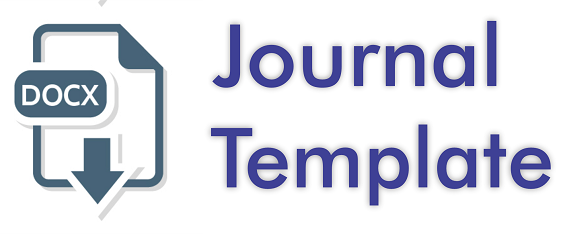Peluang Pengembangan Ekonomi Kreatif di Era Society 5.0 bagi Generasi Milenial
DOI:
https://doi.org/10.59107/ri.v1i1.21Keywords:
creative economy, millennial generation, digital ageAbstract
Currently, in the global or digital era, the creative economy is in the spotlight because of its beneficial impact on the Indonesian economy. Even though globalization in the economic sector has the potential to become a problem for the Indonesian population as a whole, especially the millennial generation, which must be addressed immediately, the millennial generation remains the main creative force in the economy. The purpose of this research is to understand the economic situation in Indonesia considering that the creative industry is being loved by the younger generation. This type of research uses quantitative and qualitative methods. The results of the study show that advances in technology and communication in the era of the digital revolution have changed Indonesia's business sector, namely the creative economy. Millennials with strong creativity will be able to shape their own direction of development, and the creative economy will also benefit them financially or vice versa by giving them an advantage. Especially Jember Regency, has encouraged the younger generation or the current generation to participate in the development of the creative economy.
Downloads
References
A Djamaris, Aurino R, and Maria Th Anitawati, ‘Pengaruh Orientasi Pasar Terhadap Inovasi Produk Padaukm Smesco’, Management, and Industry (JEMI), 1.2 (2018), 52–69
Anggoro, Moch Heru, and Yoyok Soesatyo, ‘Pengaruh Pertumbuhan Ekonomi Dan Pertumbuhan Angkatan Kerja Terhadap Tingkat Pengangguran Di Kota Surabaya’, Jurnal Pendidikan Ekonomi (JUPE), 3 Nomor 3 (2013), 1–13 <http://ejournal.unesa.ac.id/index.php/jupe/article/view/12553/16292>
Antara, Gede Eka Dharma, ‘Peningkatan Inovasi Teknologi Tepat Guna Dan Program Berbasis Pemberdayaan Masyarakat Untuk Memajukan Industri Kreativ Di Bali’, Penelitian Dan Aplikasi Sistem Dan Teknik Industri, 9.3 (2016), 257–68
Arifianti, Ria, Dan Mohammad, and Benny Alexandri, ‘Activation of Creative Sub-Economic Sector in Bandung City’, Jurnal AdBispreneur, 2.3 (2017), 201–9
Humaniora, L Marlinah, ‘Meningkatkan Ketahanan Ekonomi Nasional Melalui Pengembangan Ekonomi Kreatif’, Jurnal Cakrawala: Ejournal.Bsi.Ac.Id, 17.2 (2017), 258–65 <https://ejournal.bsi.ac.id/ejurnal/index.php/cakrawala/article/view/2488>
Magelang, Universitas Muhammadiyah, Rois Fatoni, Siti Fatimah, Program Studi, Teknik Kimia, and Universitas Muhammadiyah Surakarta, ‘Pengembangan Ekonomi Kreatif Melalui Pembuatan Sabun Cair ; Sebuah Upaya Pemberdayaan Anggota Aisyiah Di Wilayah Solo Raya’, 2017, 149–52
Margahana, Helisia, ‘URGENSI PENDIDIKAN ENTREPRENEURSHIP DALAM MEMBENTUK KARAKTER ENTREPRENEUR’, 17.2 (2020), 176–83
Mayana, Ranti Fauza, ‘Perlindungan Merek Non Tradisional Untuk Produk Ekonomi Kreatif Berdasarkan Undang-Undang Nomor 20 Tahun 2016 Tentang Merek, Indikasi Geografis Dan Perspektif Perbandingan Hukum’, 2.September (2017) <https://doi.org/10.23920/jbmh.v2n1.3>
Mellita, Dina, and Deni Erlansyah, ‘Pemetaan Industri Kreatif Dalam Meningkatkan Pertumbuhan Ekonomi Kawasan Urban Di Kota Palembang’, Prosiding Economic Globalization Trend & Risk Developing Country, 2014, 1–13 <http://eprints.binadarma.ac.id/2073/1/FP_20.pdf>
Nugraha, dian putra, ‘Peran Generasi Milenial Dalam Pengembangan Industri Kreatif Sebagai Upaya Penanggulangan Kemiskinan Di Kota Bengkulu’, Jiep, 20.1 (2020), 31–37
Nurjanah, Siti, ‘Analisis Pengembangan Program Bisnis Industri Kreatif Penerapannya Melalui Pendidikan Tinggi’, Jma, 18.2 (2013), 141–51
Paramita, R.W.D, Industri Kreatif, Manajemen INDUSTRI KREATIF, 2021, V
Putaka, Kajian, and Kerangka Pemikiran, ‘Bab Ii Kajian Putaka, Kerangka Pemikiran, Dan Hipotesis 2.1’, 1986, 16–53
Sari, Anggri Puspita, Muhammad Faisal A R Pelu, Idah Kusuma Dewi, Marthinus Ismail, Robert Tua Siregar, Nina Mistriani, and others, Ekonomi Kreatif, 2020
Sugiyanto, Ir, M Mt, Ir Sugiyanto, M Mt, Azizur Rachman, Jl Kebonsari, and others, ‘MANAJEMEN PENGENDALIAN PROYEK Author : Layouter : Dewi Editor : Design Cover : Penerbit’
Sulastri, Reni Endang, and Nova Dilastri, ‘Peran Pemerintah Dan Akademisi Dalam Memajukan Industri Kreatif Kasus Pada UKM Kerajinan Sulaman Di Kota Pariaman’, Seminar Nasional Ekonomi Manajemen Dan Akuntansi (SNEMA) Fakultas Ekonomi Universitas Negeri Padang, c, 2015, 87–94
Sumar’in, Sumar’in, Andiono Andiono, and Yuliansyah Yuliansyah, ‘Pengembangan Ekonomi Kreatif Berbasis Wisata Budaya: Studi Kasus Pada Pengrajin Tenun Di Kabupaten Sambas’, Jurnal Ekonomi Bisnis Dan Kewirausahaan, 6.1 (2017), 1 <https://doi.org/10.26418/jebik.v6i1.20721>
Sundana, I Made, ‘Manajemen Keuangan Perusahaan’, 8 (2011), 62–71
Wiwoho, Jamal, ‘9028-20333-1-Pb(1)’, Peran Lembaga Keuangan Bank Dan Lembaga Keuangan Bukan Bank Dalam Memberikan Distribusi Keadilan Bagi Masyarakat, 2011, hal. 90
Downloads
Published
Issue
Section
License
Copyright (c) 2023 RISALAH IQTISADIYAH: Journal of Sharia Economics

This work is licensed under a Creative Commons Attribution 4.0 International License.
License
The non-commercial use of the article will be governed by the Creative Commons Attribution license as currently displayed on http://creativecommons.org/licenses/by/4.0/. This licence allows the user to distribute, remix, tweak, and build upon the licensed work, including for commercial purposes, as long as the original author is credited.
Author’s Warranties
The author warrants that the article is original, written by stated author/s, has not been published before, contains no unlawful statements, does not infringe the rights of others, is subject to copyright that is vested exclusively in the author and free of any third party rights, and that any necessary written permissions to quote from other sources have been obtained by the author/s.
User Rights
Under the Creative Commons Attribution license, the author(s) and users are free to share (copy, distribute and transmit the contribution).
Rights of Authors
Authors retain the following rights:
- copyright, and other proprietary rights relating to the article, such as patent rights,
- the right to use the substance of the article in future own works, including lectures and books,
- the right to reproduce the article for own purposes, provided the copies are not offered for sale,
- the right to self-archive the article.
Co-Authorship
If the article was prepared jointly with other authors, the signatory of this form warrants that he/she has been authorized by all co-authors to sign this agreement on their behalf, and agrees to inform his/her co-authors of the terms of this agreement.
Termination
This agreement can be terminated by the author or RISALAH IQTISADIYAH: JOURNAL OF SHARIA ECONOMICS upon two months’ notice where the other party has materially breached this agreement and failed to remedy such breach within a month of being given the terminating party’s notice requesting such breach to be remedied. No breach or violation of this agreement will cause this agreement or any license granted in it to terminate automatically or affect the definition of RISALAH IQTISADIYAH: JOURNAL OF SHARIA ECONOMICS.
Royalties
This agreement entitles the author to no royalties or other fees. To such extent as legally permissible, the author waives his or her right to collect royalties relative to the article in respect of any use of the article by RISALAH IQTISADIYAH: JOURNAL OF SHARIA ECONOMICS or its sublicensee.
Miscellaneous
RISALAH IQTISADIYAH: JOURNAL OF SHARIA ECONOMICS will publish the article (or have it published) in the Journal, if the article’s editorial process is successfully completed and RISALAH IQTISADIYAH: JOURNAL OF SHARIA ECONOMICS or its sublicensee has become obligated to have the article published. RISALAH IQTISADIYAH: JOURNAL OF SHARIA ECONOMICS may conform the article to a style of punctuation, spelling, capitalization and usage that it deems appropriate. The author acknowledges that the article may be published so that it will be publicly accessible and such access will be free of charge for the readers. RISALAH IQTISADIYAH: JOURNAL OF SHARIA ECONOMICS will be allowed to sublicense the rights that are licensed to it under this agreement.



.png)
.png)






